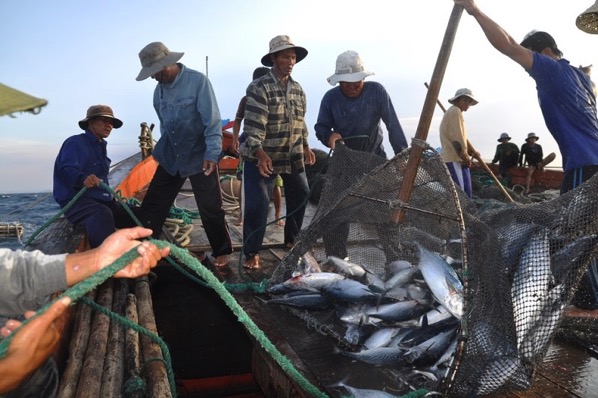Fish Subsidies Must Come to an End
Worldwide, fishing has historically been a critical source of food and jobs, and given its importance, many governments support their local industries with subsidies to keep fisheries competitive in the global market. Now, fish stocks are collapsing after more than half a century of decline.
Fish are an important source of food across the globe. According to our research, it provides the equivalent of 120 million mature cows of animal protein each year and an annual global economic impact of $360 billion in jobs and revenue. Oceans and the marine life they sustain are also a source of culture and recreation for people all over the world — think of what Australia would be like without its reefs, or California without its kelp forest.
And yet, poor government policies continue to threaten the oceans, especially the subsidies that drive the industry to unsustainable practices.
Of the estimated $35 billion in annual global fishing subsidies that governments provide, our research reveals $11 billion are beneficial subsidies used for research and fishery management programs that help the planet's waterways support more fish, while $20 billion are capacity-enhancing, money used to prop up unsustainable fishing. These capacity-enhancing subsidies artificially inflate fishery revenues by about 20 percent, according to Oceana. Such subsidies, provided mainly by countries like Russia, China, Japan, Vietnam, and Mexico reward overfishing and are depleting ocean fish stocks.
For nearly two decades, the World Trade Organization (WTO) and the United Nations have failed to get countries to agree on provisions that would discipline the use of the most devastating subsidies, or those that reward overfishing.

No comments:
Post a Comment